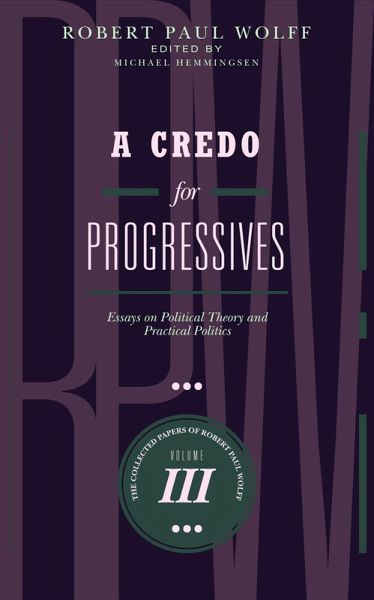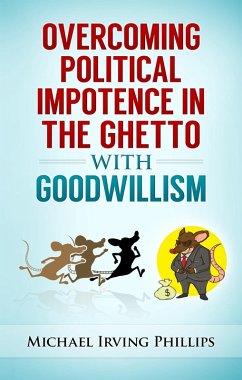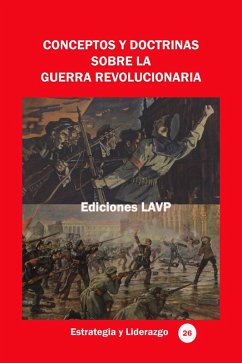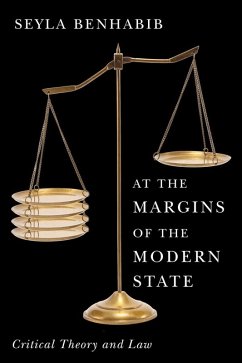
A Credo for Progressives: Essays on Political Theory and Practical Politics (The Collected Papers of Robert Paul Wolff, #3) (eBook, ePUB)
Sofort per Download lieferbar
11,49 €
inkl. MwSt.

PAYBACK Punkte
0 °P sammeln!
For fifty-five years, Robert Paul Wolff has been reflecting on the theory of modern political society and engaging actively in a number of progressive political movements, including the Campaign for Nuclear Disarmament, the protest against the Viet Nam War, and the world-wide effort to end the apartheid regime in South Africa. This volume brings together a wide-ranging selection of the writings that have flowed from his pen, his typewriter, and his word processor. The volume opens with a brief Credo for Progressives, in which Wolff forthrightly states the moral and political commitment that ha...
For fifty-five years, Robert Paul Wolff has been reflecting on the theory of modern political society and engaging actively in a number of progressive political movements, including the Campaign for Nuclear Disarmament, the protest against the Viet Nam War, and the world-wide effort to end the apartheid regime in South Africa. This volume brings together a wide-ranging selection of the writings that have flowed from his pen, his typewriter, and his word processor. The volume opens with a brief Credo for Progressives, in which Wolff forthrightly states the moral and political commitment that has shaped his life and writings. The first section of the volume consists of seven selections of a general theoretical nature, including the essay "On Violence" that foreshadowed Wolff's classic work, In Defense of Anarchism. Three of these: "The Concept of Community," "The Indexing Problem," and "Who Owns Our National Story" have until now not been available in print. The second section of the volume contains ten pieces written about specific people or for specific occasions. These include Wolff's important refutation of the first version of John Rawls' theory of justice, a touching personal reminiscence of his departed friend, Herbert Marcuse, a sharp critique of the reaction of the University of Massachusetts to the arrival on campus of Minister Louis Farrakhan, and several memoranda written for a graduate seminar Wolff taught on ideological critique. The third section contains a selection of writings of an immediate practical nature on issues with which Wolff has been deeply involved. The volume closes with a photocopy of a handwritten document in which we see Wolff working out, first hand, an issue of great importance for those who continue to hope for a socialist transformation of capitalism.
Dieser Download kann aus rechtlichen Gründen nur mit Rechnungsadresse in A, B, CY, CZ, D, DK, EW, E, FIN, F, GR, H, IRL, I, LT, L, LR, M, NL, PL, P, R, S, SLO, SK ausgeliefert werden.













